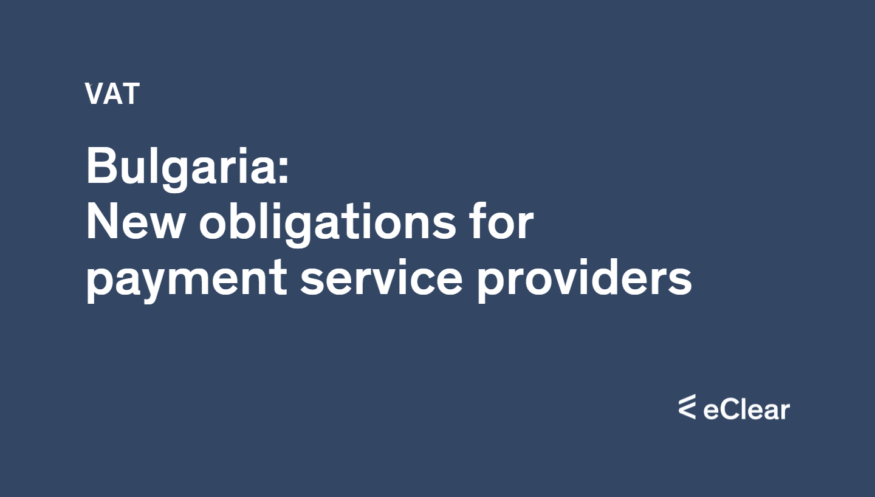Adjustment of the VAT charged on bad debts (debt remission)
The amendments to the Bulgarian VAT Act allow a taxable supply to be deducted from the tax base if it is not paid in full or in part and the debt is irrecoverable. The new law determines the conditions and requirements under which an adjustment is possible, the criteria for which a claim is irrecoverable, the procedure for the adjustment and the situations in which no adjustment can be made. Special provisions have also been created for cases where the recipient’s or supplier’s VAT registration is terminated before the correction is made or where all or part of an already corrected invoice is repaid. The service recipient must correct the input tax from the supplier’s services if the supplier has reduced the taxable amount under the new waiver rules.
Collection and reporting of data on cross-border payments and their beneficiaries (in force from 1 January 2024)
Council Directive (EC) 2020/284 provisions have been transposed into the VAT Act in Bulgaria. Therefore, payment service providers (PSPs) will have new obligations to collect and report data on cross-border payments and their recipients.
In addition, payment service providers must keep electronic records of cross-border payments and their recipients and report this information to the tax authorities for individuals who have received more than 25 cross-border payments in three months.
This information must be reported electronically quarterly by the end of the month following the reporting quarter. The corresponding template for reporting will be included in the regulations for applying the VAT Act, and this obligation will apply from 1 January 2024.
Reduced VAT rate
The reduced VAT rate of 9% is now a permanent change in the law for certain goods and services. The reduced VAT rate of 9% applies to books, including textbooks and similar books, and periodical publications supplied in paper and/or electronic form.
The reduced rate does not apply to advertising publications and those containing mainly or exclusively video and/or audio music content.
In addition, the reduced VAT rate of 9% also applies to infant and young child food, baby nappies and other similar hygiene items. This means a lower VAT rate than the standard rate applies to these specific goods and services.
Securities for liquid fuel deliveries
The recent amendments to the Bulgarian VAT Act have significantly changed the requirements for securities in the context of liquid fuel supplies.
Under the new legislation, the amount of security required for liquid fuel supplies could be reduced by 50%. This reduction can be achieved by providing protection for three consecutive years, maintaining a clean record of no law violations, and having no outstanding public liabilities.
It’s crucial to note that the deadline for submitting the required securities has been significantly shortened from seven to three days.
Further adjustments
Other amendments and clarifications introduced into the VAT Act include:
- A new special regulation for the declaration of goods to the customs authorities will be introduced. This regulation will offer a clear path for proving the 0% VAT rate on goods shipped from a non-EU supplier to a place outside the EU. This empowers you with a straightforward process to follow.
- It is now explicitly clarified that the possibility to correct wrongly issued tax documents affected by an administrative act of the tax authorities only exists if the tax debt established by the administrative act has been settled. This provides a clear and reassuring guideline for your actions.
- The law includes explicit texts to clarify the conditions under which the recipient of a supply may deduct input tax in the case of corrected, incorrectly issued tax documents, including those affected by an administrative act of the tax authorities that has entered into force.
- The scope of Art. 80 (2) No. 5 UStG is extended by not specifying the expiry period of the discarded goods in a legal standard. Possibly, the input tax deducted initially is still inappropriate if company standards exist for the shelf life of the goods in question and the disposal is within the usual ranges.
- The VAT exemption for financial services is now extended to alternative investment funds that qualify as special funds under the criteria of EU law. This extension brings a sense of relief and security for those involved in such funds.
- The rules on the taxation of distance sales are clarified.
Source: home.kpmg







